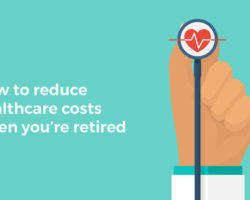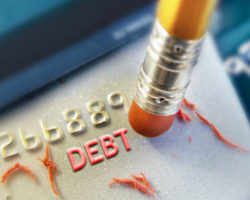Credit cards can make your life a lot easier, but they can also get you into a lot of trouble, especially if you’re not using them right. Unfortunately, in this world where credit is king, a lot of Americans don’t know how to use their credit cards. That’s why they often make several credit card mistakes that end up costing them.
If you want to learn how you can use your credit card better, here’s a list of the most common mistakes plastic users make, and what you can do to avoid them.
1. Only focusing on the perks
A lot of people get credit cards just because of the rewards that they offer. Rewards like frequent flier miles or travel points can be a good thing, but only if the card is useful as well. If the interest rates and terms are against you, then your credit card will end up hurting you, no matter what flashy rewards it comes with.
2. Not reading the fine print
This is very important. Always read everything written on the contract. There’s nothing wrong if you read it twice, if you take your time reading it or if you ask questions. When it comes to your finances, it’s better to be safe than sorry.
3. Overspending
Not only will overspending bring a lot of debt with it, but it will also hurt your credit rating. Your credit score is calculated from many different pieces of data, including how much of your credit limit you’re using. This is because the more credit you use, the more likely it is that you may not be able to pay it back. The more credit card debt you charge, the more that negatively impacts your credit score.
If you want to have the highest credit score possible, between 760 and 850 points, always monitor your utilization rate and make sure you keep your credit card debt at less than 10% of your available credit.
4. Closing accounts without a reason
Many credit card users believe that they can boost their credit scores by closing old or unused accounts, where the balance has been paid off. However, this reduces your overall available credit and can actually impact your credit score negatively, unless you dramatically reduce your spending.
So think twice before closing any credit cards.
5. Not using your credit card
Credit card companies want you to use your credit card. It’s how they make money. But if you don’t use the card for a long period of time, they might consider it inactive and close your account. And, like I said above, this could negatively impact your score.
If you don’t want to use your credit card but also don’t want your issuer to close your account, you should try making small purchases with it every once in a while. And then just pay everything off immediately.
6. Not paying your bills on time
Not paying your bills on time can bring with it late fees and larger interest rates, in addition to lowering your credit score. That’s why it’s important to set up reminders and make sure that everything is paid. If you don’t have enough money, try to reduce spending in other areas and ask for a grace period.
7. Only making minimum payments
You might think that you’re saving money by just paying the minimum amount each month, but this is wrong! It can cost you a lot of money and take forever to pay off your entire debt.
It’s a lot smarter and better to pay off as much as possible each month. This course of action can actually help you save money.
8. Cash advances
Taking cash advances can be a big mistake, especially if you don’t have an emergency on your hands. They come with very high interest rates, no grace period and upfront fees, and can quickly make you regret your decision. Try applying for a short-term loan instead, or borrow some money from a loved one.
9. Spending in order to get rewards
It’s amazing how these rewards can get you into trouble. But, just like there are many people who get credit cards for the rewards, there are also many who spend like crazy for the same reason.
You shouldn’t buy things that you don’t need just to get to those airline miles! It is never a smart thing to do.
10. Believing that carrying a balance on your credit card can improve your score
It’s one thing to carry a balance on your credit card because you can’t afford to pay it off and a whole different thing to carry it in order to improve your credit score. This is a myth. A false one. The balance reported to the credit bureaus is the balance from your last statement, not what was left over after you received that statement and paid the bill.
11. Not paying attention to your monthly statement
Checking your monthly statement regularly can save you a lot of trouble. It contains information regarding changes to interest rates or fees, when your payment is due, and many other useful things. You don’t want to ignore these things! Take a few minutes and look over it each month. You won’t regret it.










